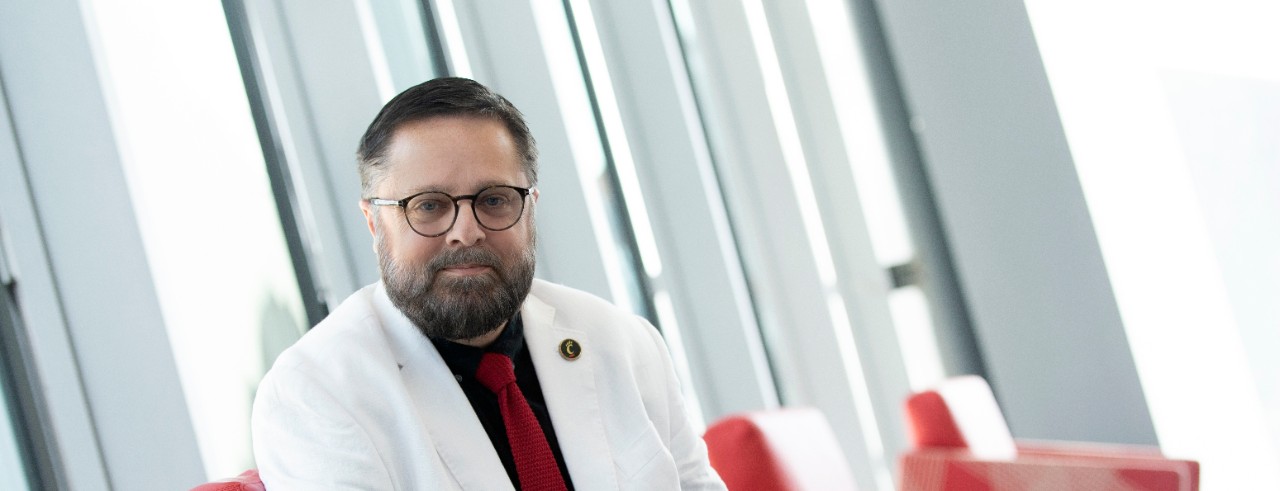
Medical News Today: COVID-19 misinformation was 'entirely predictable,’ experts say
UC expert commentary on study of COVID-19 misinformation compared to other health topics
In today’s world of cultural politics, UC social media expert Professor Jefferey Blevins says “It seems that a lot of people look to social media not necessarily to find the ‘truth’ about anything, but rather to find information and commentary that supports their already-held views — hence, what social scientists call ‘confirmation bias.’”
Blevins, who heads UC’s Department of Journalism, said the above in an article where expers weighed in on a recent study at George Washington University. The research found: COVID-19 posts were 1.13 times more likely to link to credible sources than health-related posts prior to the pandemic. But among the COVID-19 posts that linked to “not credible” sources, these sources were 3.67 times more likely to contain misinformation.
Blevins recently published a UC study on the spread of medical misinformation during the earlier stages of the pandemic.
Read Blevins commentary on the GWU study, which he feels documents a situation that has worsened since spring 2020.
Featued image at top of Jeffrey Blevins. Photo/UC Creative + Brand.
Impact Lives Here
The University of Cincinnati is leading public urban universities into a new era of innovation and impact. Our faculty, staff and students are saving lives, changing outcomes and bending the future in our city's direction. Next Lives Here.
Related Stories
Love it or raze it?
February 20, 2026
An architectural magazine covered the demolition of UC's Crosley Tower.
Discovery Amplified expands research, teaching support across A&S
February 19, 2026
The College of Arts & Sciences is investing in a bold new vision for research, teaching and creative activity through Discovery Amplified. This initiative was launched through the Dean’s Office in August 2024, and is expanding its role as a central hub for scholarly activity and research support within the Arts & Sciences (A&S) community. Designed to serve faculty, students, and staff, the initiative aims to strengthen research productivity, foster collaboration, and enhance teaching innovation. Discovery Amplified was created to help scholars define and pursue academic goals while increasing the reach and impact of A&S research and training programs locally and globally. The unit provides tailored guidance, connects collaborators, and supports strategic partnerships that promote innovation across disciplines.
Blood Cancer Healing Center realizes vision of comprehensive care
February 19, 2026
With the opening of research laboratories and the UC Osher Wellness Suite and Learning Kitchen, the University of Cincinnati Cancer Center’s Blood Cancer Healing Center has brought its full mission to life as a comprehensive blood cancer hub.
